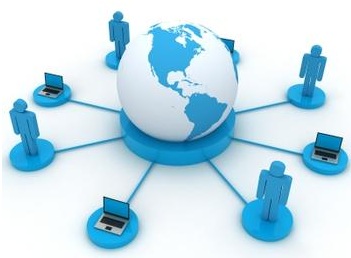<p style="text-align: justify;">The internet has never been a static technology; instead it has undergone a number of dramatic evolutions over the years, as well as experiencing ongoing changes, both as a result of technological breakthroughs and changing user habits.</p>
<p style="text-align: justify;">Because of this it may seem like the internet is in a constant state of upheaval, which does give the impression of a chaos that is hard to predict.</p>
<p style="text-align: justify;">Meanwhile even those at the top of the online pile, including Facebook’s Mark Zuckerberg, are trying to unpick the implications of the internet pervading every aspect of our lives.</p>
<p style="text-align: justify;">There are, of course, a number of theories about the trajectory that the internet’s evolution will take over the next decade. And what may be in store in the future can help companies prepare for the changes today.</p>
<h3 style="text-align: justify;"><strong>Common Pool</strong></h3>
<p style="text-align: justify;">Based on findings from the Internet Society, a quartet of potential scenarios for the future shape of the internet were dreamt up back in 2010. And in the interim there have been various events which suggest that some theories are stronger than others.</p>
<p style="text-align: justify;">The common pool scenario is perhaps the most desirable and likely of the lot, since it envisions the internet as an increasingly decentralised technology that is distributed internationally amongst individuals and businesses in a fair way. This encourages competition and uses this competitiveness to eliminate disputes and overcome challenges.</p>
<p style="text-align: justify;">Responsiveness will be a key benefit of this state of affairs, allowing the internet and its users to adapt to whatever changes may come further down the line.</p>
<p style="text-align: justify;">As a result, companies seeking website design in Swansea are just as well positioned to boost traffic and improve customer engagement with an overhauled site as those based elsewhere in the UK. And with Swansea web design by Accent-adc on offer this is an affordable prospect for most.</p>
<h3 style="text-align: justify;"><strong>Boutique Networks, Moats &; Drawbridges</strong></h3>
<p style="text-align: justify;">Alternatively some believe that the internet could end up divided and somewhat dismantled from its current form as a result of selfishness on the part of governments and organisations. Networks will be subjected to greater amounts of control by individual groups in these two scenarios and there will be a lot more negotiation involved in the way resources are allocated, rather than the current reliance on competition to keep an even keel.</p>
<p style="text-align: justify;">The growth of the internet internationally would most certainly be stifled because only the rich and prosperous regions of the world would be provided access, while poorer places would have a tough time summoning the resources to get on the ladder. The economic consequences would certainly be negative.</p>
<h3 style="text-align: justify;"><strong>Porous Garden</strong></h3>
<p style="text-align: justify;">For businesses and content creators this scenario may be the most ideal, since globally accessible connectivity is still envisioned here, but with better management of services through which access is provided ensuring higher levels of control than are currently possible.</p>
<p style="text-align: justify;">Ultimately the future of the internet may consist of a combination of these scenarios, but the importance of an online presence for businesses will not falter in any instance.</p>

How The Internet Is Evolving?
